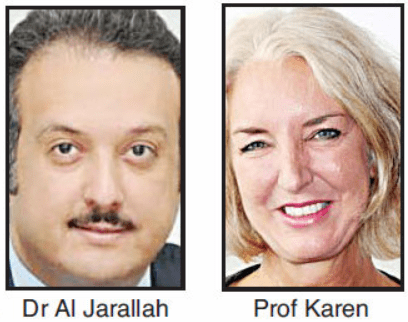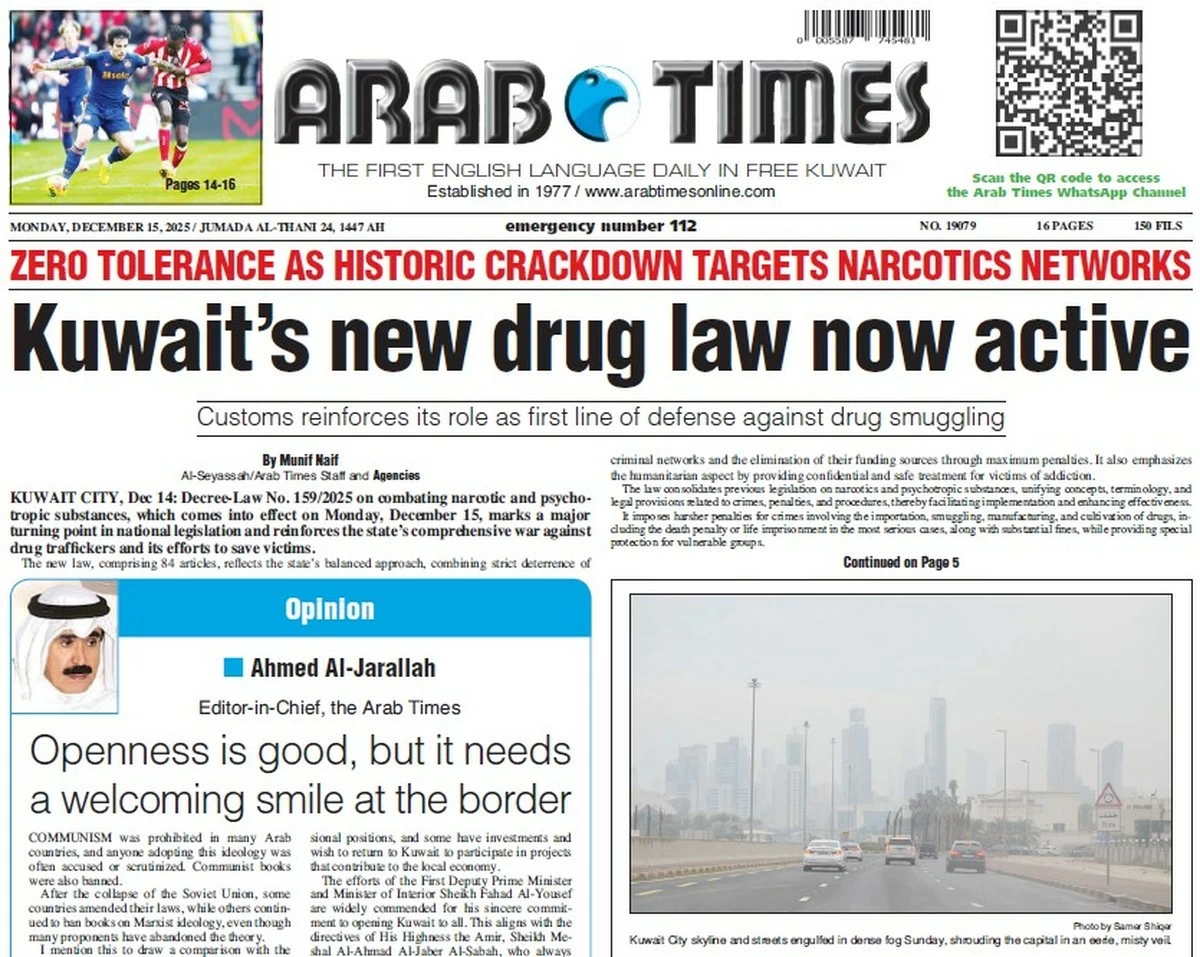28/09/2020
28/09/2020
KUWAIT CITY, Sept 28: World Heart Federation(WHF) has the singular purpose of uniting the global health community to beat cardiovascular disease.

This year, WHF asking individuals, communities and governments to “use heart” to make better choices for society, our loved ones and ourselves. The “Use Heart” call to action is about using our head, influence and compassion to beat cardiovascular disease, the world’s number one killer. Given the current situation, WHF is also calling for recognition and urgent protection of frontline healthcare providers.
Professor Karen Sliwa, WHF President, said: “In these trying times, it is paramount that we pay special attention to those who are at greater risk of complications from COVID-19 as well as better understand how the virus is affecting the hearts of otherwise healthy people.
COVID-19 has created a perfect storm, in which those people with cardiovascular disease fare poorly, and those at risk don’t seek the treatment that they need to keep their hearts healthy. The heart and the entire vascular system are in danger and we need to act now.
The world has not experienced a global event on this scale in decades – today we have a unique opportunity to unite, to mobilise our skills and to use our heart to act.” Dr Mohammad Al Jarallah, Head of Sabah Al Ahmad Cardiac Center, Al Amiri Hospital said: The COVID-19 pandemic is creating a perfect storm for the heart. Three main factors are contributing to this phenomenon. First, people with COVID-19 and heart disease are among those with the highest risk of death and of developing severe conditions. Second, after the virus attacks, the heart might be adversely affected even in people without previous heart conditions, potentially resulting in long-term damage.
Finally, fear of the virus has already led to a sharp decline in hospital visits by heart patients for routine and emergency care. On World Heart Day, we should focus on educational activities like “World’s Most Urgent Heart-to- Heart”, a series of debates focused on how to unlock behavioral and societal change to beat cardiovascular disease. For many people, preventing cardiovascular disease comes down to behavior change. Yet, there is nothing harder than changing personal and societal behavior, thereby realizing lasting change. Comprised of experts from a number of disciplines, the debates will seek to uncover insights into the triggers and barriers to behavior change and how that manifests itself across societies.
Dr Raja Dashti, Senior Consultant Cardiologist, Sabah Al Ahmad Cardiac Center, Al Amiri Hospital says :This World Heart Day is unlike any other that has come before. Public health is front and center as societies face the challenges of the COVID-19 pandemic and the physical, emotional and economic toll it has taken. Almost a million lives have been lost to COVID-19 this year. As a comparison, an estimated 17.8 million people died from cardiovascular disease in 2017.
While patients steer clear of hospitals out of fear of catching the virus, their health is compromised even further. It is vital to make access to healthcare, healthy foods and a healthy way of life accessible and affordable to all people. Regulating unhealthy products, while creating healthy environments are examples of such solutions for governments and communities.
Dr Rajesh Rajan, Cardiologist, Sabah Al Ahmad Cardiac Center, Al Amiri Hospital said: Cardiovascular disease has many causes: from smoking to diabetes, high blood pressure, obesity, and air pollution. To combat these, we should focus not only for individual behavior change but for a societal one.
In order to better understand the relationship between cardiovascular disease and COVID-19, we should plan clinical registries which aims to better describe cardiovascular outcomes and identify cardiovascular risk factors associated with severe complications and death in hospitalized patients with COVID-19. Mortality rate in smokers are found much higher in COVID 19 when comparing with non-smokers.
According to World Health Organization 2 million people die each year from tobacco induced heart disease. Smoking has adverse effects on lungs, inhibits the body’s responsiveness to infections, and suppresses immunity. Around one in five deaths from heart disease are caused by tobacco use or exposure to second-hand smoke.


